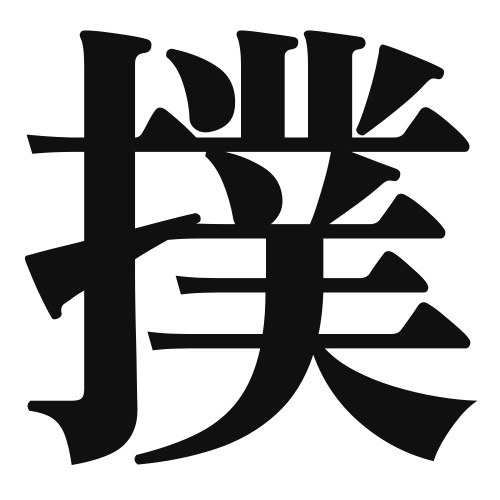1. Overview of Meaning
The kanji “撲” (baku) generally means “to strike” or “to hit.” It conveys the action of hitting something with force, often used in contexts related to physical impact or forceful actions.
2. Formation and Radical
Formation of the Kanji: The kanji “撲” is a compound character (会意文字) that combines elements to convey its meaning. It consists of the radical for “hand” (扌) on the left, indicating an action performed by hand, and the character “博” (baku) on the right, which can mean “extensive” or “wide.”
Radical: The radical of “撲” is 扌, which is related to actions performed with the hand.
3. Examples of Usage
Common Words and Phrases: Some common words that include “撲” are “撲滅” (bokumetsu – to eradicate) and “撲殺” (bokusatsu – to beat to death).
Example Sentences in Daily Conversation:
- 彼はボールを撲った。 (Kare wa bōru o butta.) – He struck the ball.
- その問題を撲滅しなければならない。 (Sono mondai o bokumetsu shinakereba naranai.) – We must eradicate that problem.
4. Synonyms and Antonyms
Similar Kanji: A similar kanji is “打” (da), which also means “to hit” but is often used in a broader context, such as “to strike” or “to play” (as in playing a musical instrument).
Antonyms: An antonym could be “守” (mamoru), which means “to protect” or “to guard,” indicating a defensive action as opposed to an offensive one.
5. Cultural and Historical Background
Relation to Japanese Culture: The kanji “撲” is often associated with martial arts and sports, where striking is a fundamental action. It reflects the physicality and discipline found in these practices.
Proverbs and Idioms: While there may not be specific proverbs that use “撲,” the concept of striking or hitting is often metaphorically used in expressions related to overcoming challenges or obstacles.
